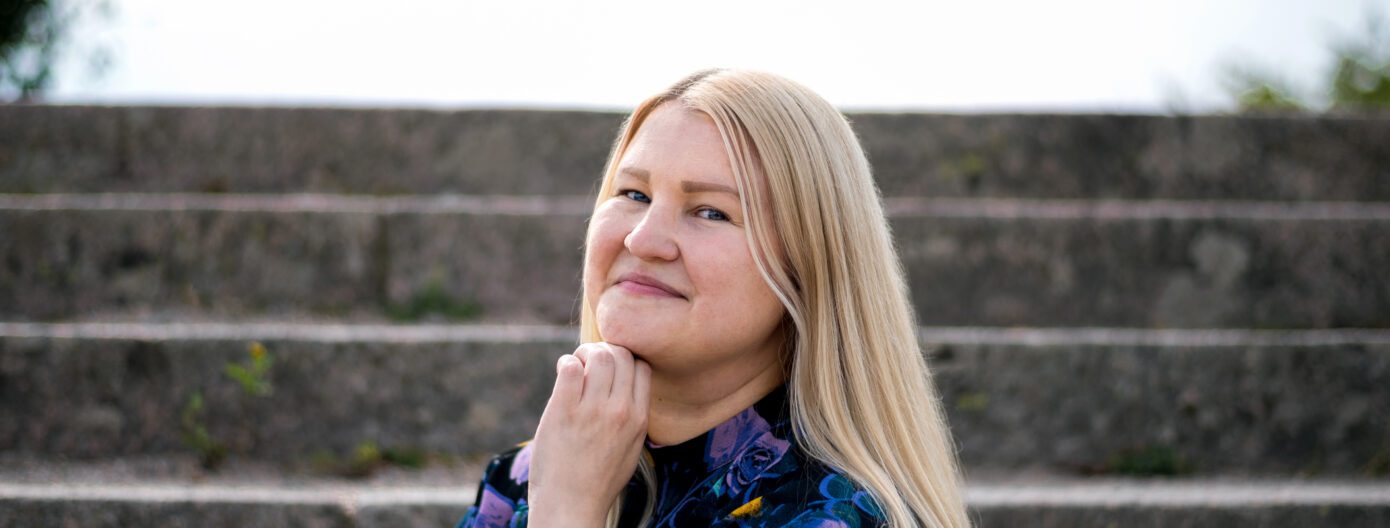Enni Sahlman, new, although she has worked there before, member of the Nessling team, is the first Impact Specialist in the Foundation’s history. Who is Enni, and why is she exceptional in the environmental scene?
Who are you and were do you come from?
I could be called as a new and old member of the Nessling team. I handled the Nessling Foundation’s communications in 2014–2018 while I worked at a communications agency. The Nessling Foundation was one of my biggest clients and always a project of passion for me. Back then, we renewed, for example, the foundation’s website which was proper 90’s style. It is a pity that the old website is not stored anywhere in the archives anymore!
Because of my background, I see the world through the lenses of communication. It makes a huge difference how we talk about things. I find it fascinating that the Nessling Foundation has long been consciously talking about “sustainability of the use of natural resources”. Usually people talk about “sustainable use of natural resources”. These two sentences have a foundational difference in the way that natural resources are seen.
The same way there is a difference in saying “the Ukraine war” or “Russian attack war on Ukraine”. Or if we talk about “changing gender” or “correcting or reinforcing gender”. When they become common, these kinds of word choices change the world.
What drew you to the Nessling Foundation?
The Foundation has always appeared to me as a pioneer. The Foundation committed to responsible investment years before everyone was talking about it, they have valued popularising and implementing research results and, already for a long time, they have been boldly speaking about the position of grant researchers, and they are open-mindedly trying out new kinds of initiatives, such as the Space for Science and Hope in Puistokatu 4! It feels like a privilege to be able to work in such a unique environment. And I don’t mean just the villa but the whole philosophy around it.

If we had patience to listen more to researchers, many of the problems in the world would not arise. And many would also be solved.
Another good example of the pioneering is the discussion series Environmental Dialogues that the Foundation has been creating for a long time together with Kone Foundation and the Forum for Environmental Information. It was started long before this kind of dialogue became mainstream.
I remember well a discussion in 2018 on infectious diseases that spread from animals to humans. They were talking about the increasing likelihood of infectious diseases when climate change is progressing. Two years later, literally the whole world got to live through this discussion because of COVID-15.
This example is also sad – if we had patience to listen more to researchers, many of the problems in the world would not arise. And many would also be solved. In my own work, I am passionate about making researched information equally and understandably available to everyone.
How did you get interested in environmental topics in the first place?
I have worked with different environmental actors practically since the beginning of my career, and, through that, I have been able to deep dive into the environmental topics. However, I am a special case in the environmental scene because I have never really had a particular environmental awakening. Not even though my mother who has always been a vegetarian for ethical reasons, which was still quite exceptional in my childhood.
Anyway, I want to do my part to work for a sustainable society where I can. My biggest impact on creating a sustainable world is probably the fact that I have chosen to use my working life expertise only to advance good. Before Nessling, I worked for a long time as a communications consultant for numerous science and expert organisations. I have also guided communications of a youth organisation, for example.
How can we solve the ecological crisis?
Although each individuals’ actions, even those that feel small, are important now, when overcoming the environmental crises is under enormous hurry, I believe in the power of changes happening especially in structures and cash flows and in decision-making that is based on researched data. I believe that the best results are achieved by regulations and by companies understanding that sustainable business is the best business. We need high quality research for the foundation of both. Working in the Nessling Foundation, it is exciting to get to see the new research on the spot as well as to talk directly with the researchers and help them bring forth their work.

